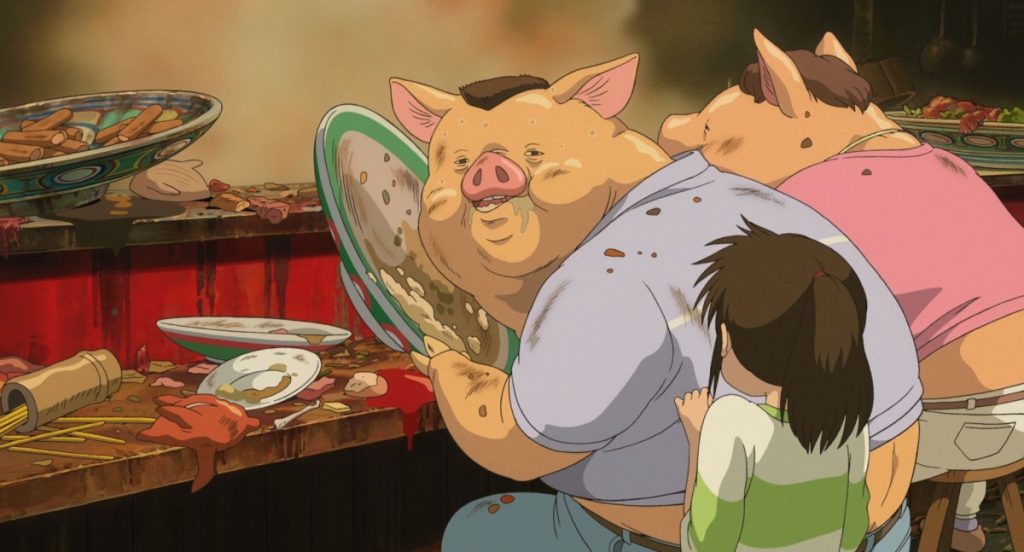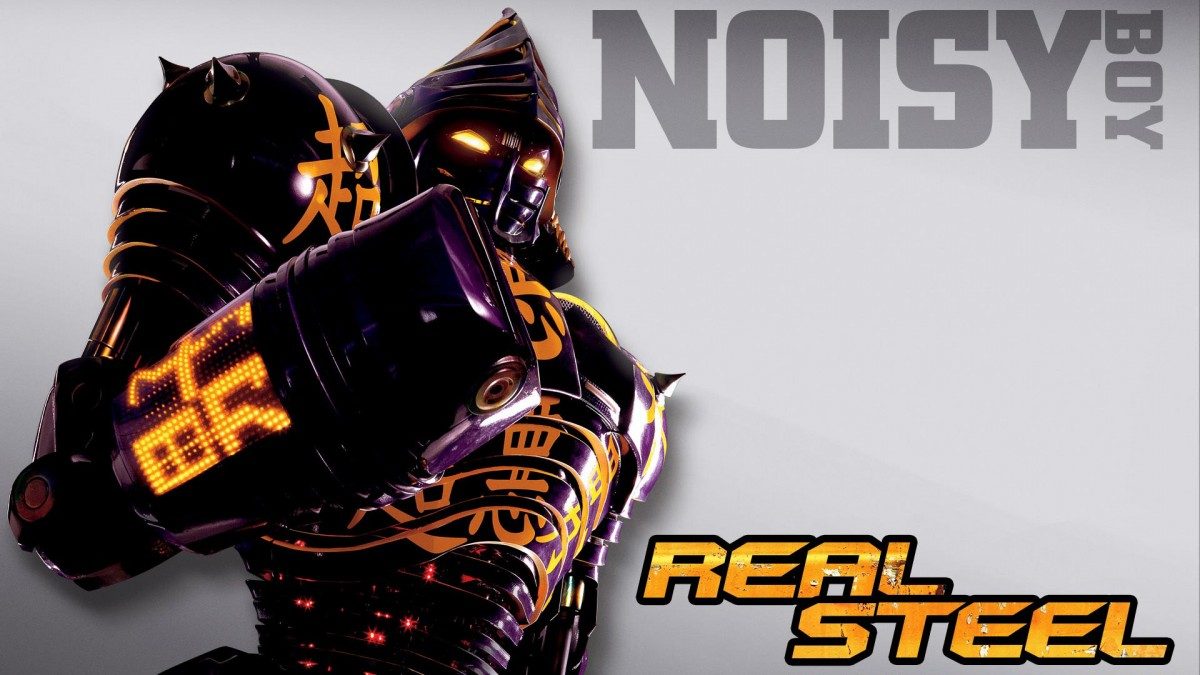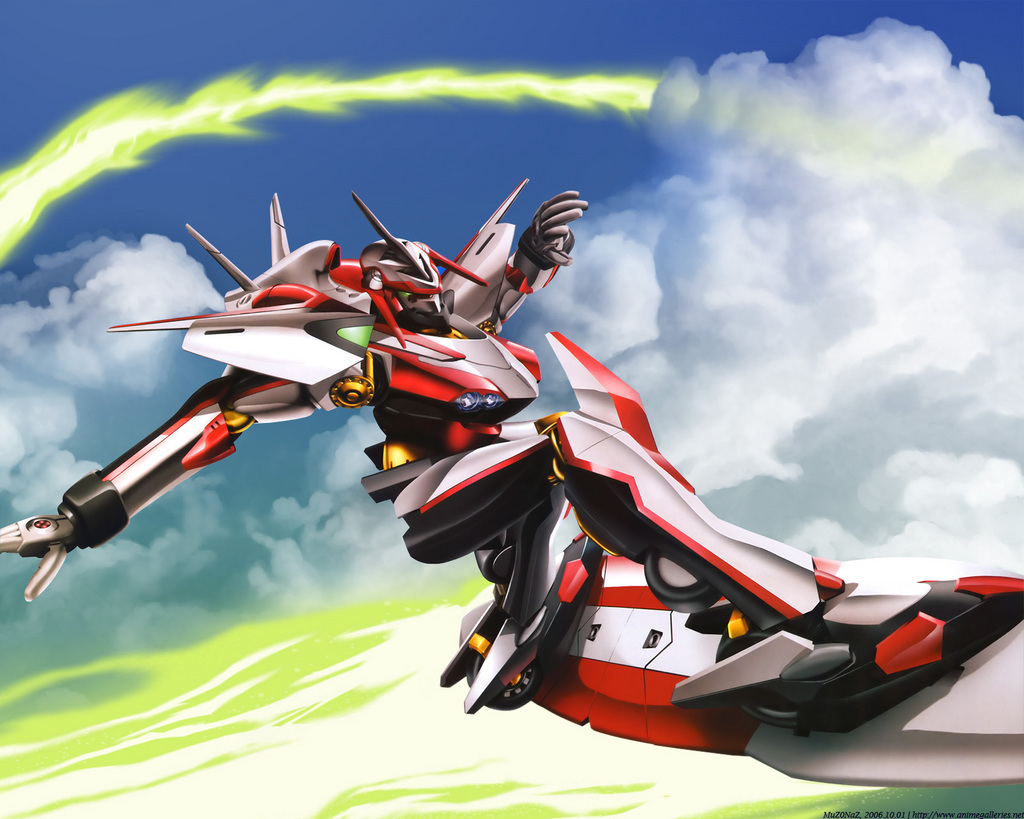Ok, so it is the end of week 8, one week “break”, and I’ve been feeling kind of lost.
Mostly I think the feeling is because it’s near the end of my first quarter here at Evergreen, yet I’m already planning out my next two quarters plus summer and next year as it will be my senior year. And in all that planning, since it involves planning for graduate studies too, my brain is feeling maxed out.
And with the House passing a new tax law that turns tuition waivers into taxable earned income for graduate studies students, finding a feasible way to fund my tuition now without taking out extra loans to pay off, just the taxes on tuition waivers, it’s something everyone in graduate studies will have to deal with if the law sticks. And my, and many others, usual methods of self-employment through the internet, will more than likely be cut off if Congress dismantles the Net Neutrality Act, which will make the lag and bad wifi signals we all deal with now seem like a futuristic dream in a galaxy far, far away…
Whenever I start to feel lost in a sea of options, variables and the unknown, there is always one thing I turn to, to refocus. And as you may have guessed, that’s “Star Wars”.
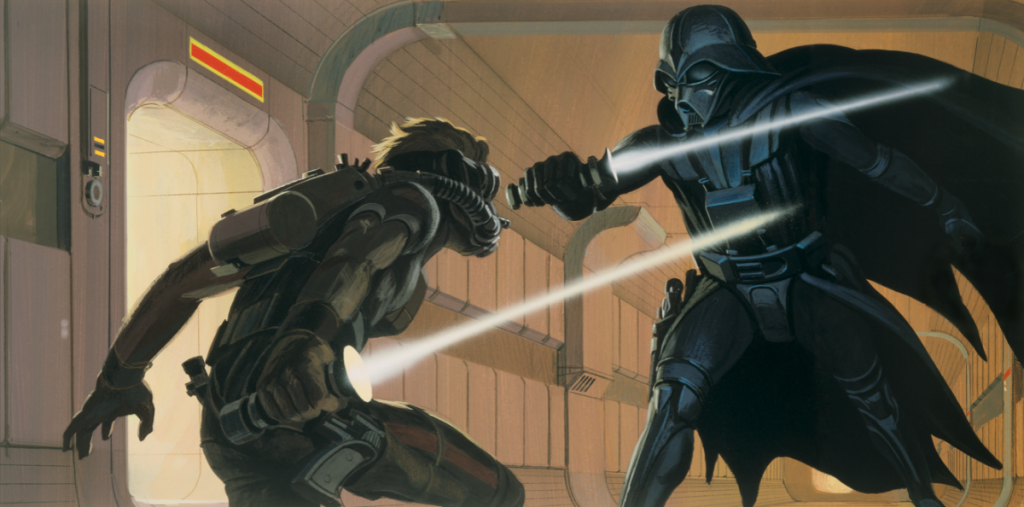
Concept art from the original trilogy of “Star Wars”
“Star Wars” is the origin of my “home”. It was one of the first movies I watched as a kid, about age four, some of my first books, toys, games and it was one thing that has always been a safe harbor in my life. No one questioned it, challenged it, tried to take it away, persuade or discourage me from it. No one batted an eye or said anything otherwise when I decided to start celebrating “May the 4th” or “Star Wars” day.
I was never consumed or negatively obsessed with it, so no “fan boy” issues.
It is hard to describe without it sounding weird to myself, but for the people in my life who knew and had known me, to know me, was to know “Star Wars”, in a way. On the outside it is odd and even thinking about it, seems absurd, but these movies in many ways have defined much of my life, including my chosen career path going into film, despite it being a common inspiration among film students and that it was a choice I made at twelve years old.
And I couldn’t give up on it. It had less, if anything, to do with how much I loved “Star Wars” and how much it had helped and impacted me throughout my life, and everything to do with what it symbolized to me. A life spent writing and creating stories for everyone to see.
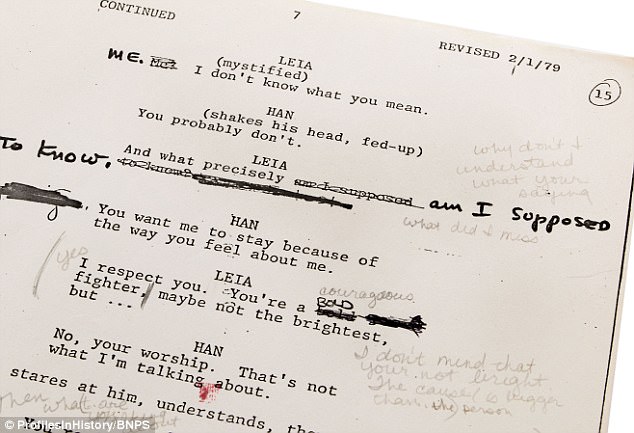
A page from Carrie Fisher’s annotated script from, “The Empire Strikes Back”.
I love writing. I love movies. I love creating and drawing things. Photographing, filming, learning, studying, and just being curious about everything. As a kid I wanted to explore, travel, think, create and as I got older and understood the world around me better, I wanted to do something good that would make it less dim and give other people hope the way “Star Wars” had done for me and still does.
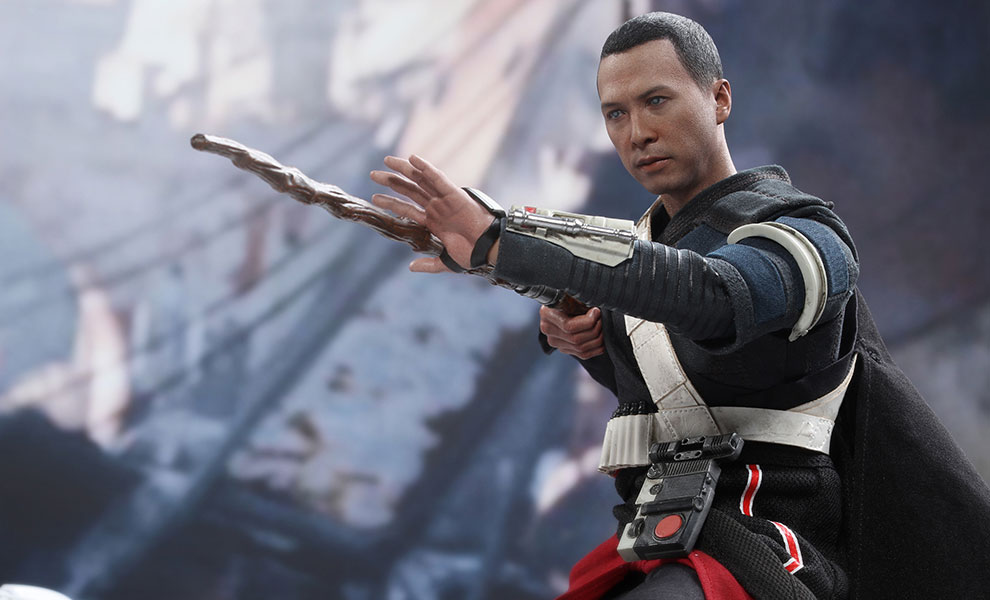
Donnie Yen or Yen Chi Tan, who plays Chirrut Îmwe in “Rogue One: A Star Wars Story” whose character is famous for the line, “I am one with the Force and the Force is with me.” He is also the most favored character in the film according to the StarWars.com poll that is still open.
I didn’t care about making a bunch of money, or being famous. I wanted to create stories I could see, and not just read. The idea of being rich and famous in Hollywood, the pinnacle of the “American Dream”, had to be pointed out to me, but I could have cared less. If anything, fame and fortune scared me and that fear, plus the cultural pressure to “make it”, made it harder to focus on what I wanted really wanted to accomplish.
My goal was to create and share. Create and do something good to make the world better in some way for someone.
Here in America, in a culture whose nexus is wealth, celebrity and material goods, I know that sounds, well stupid and naive. Who wouldn’t want to be rich and famous? Like in the lyrics to the Nickleback’s song “Rockstar”: “I’ll trade this life for fortune and fame. I’d even cut my hair and change my name.”
And given Nickleback is Canadian, and though the song is referencing the typical things artists do to make it in Hollywood, like changing their name, the second part of that line does echo what many Asian immigrants did to be model citizens, such as the family in “When the Emperor was Divine” and the sisters’ names in “Forgotten Country”.
It makes me wonder, and then ache, at how much people have given up of themselves in pursuit of this dream that to me is a nightmare.
To give up who I am, the principles I believe in, and let the pursuit of wealth and status shape what I create, would be as bad if Luke had taken Vader’s hand in “The Empire Strikes Back”.

The scene, prior to effects and editing, in “The Empire Strikes Back”, when Vader asks Luke to join him and Luke refuses.
I would rather face an uncertain future where my hopes and dreams could still exist, than accept a present reality where they would end.
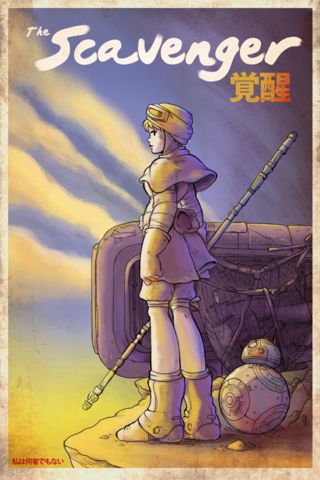
“Star Wars” and “Nausucaa” crosscurrents fan art.
Given that I will be turning 27 in less than a week, with my completed BA within less than two years, my graduate studies along with turning the age of 30 in front of me, I’ve been looking back, searching forward, wondering what it is I need to do now, so I can do what I want later and make an uncertain future, less uncertain, and maybe possible.
And honestly, it’s watch “Star Wars”, remember what is I want to do, why I want to do it and who I want to do it for.
Why has “Star Wars” been so important, not only to me, but to others.
How it is, that in this massive franchise, whose stories and universe have spanned almost half a century now, in the forms of movies, games, books, comics, toys, clothing, music, with massive space battles, intense light saber duels and weapons the size of moons and planets, that it is the quietest moments and the simplest words that seem to stick with us, or at least these ones with me:
“I am one with the Force and the Force is with me.” – Chirrut Îmwe, Rogue One
“Because it’s the right thing to do.” – Finn, The Force Awakens
“So this is how liberty dies… with thunderous applause.” – Padme, Revenge of the Sith
“Truly wonderful, the mind of a child is. Uncluttered.” – Yoda, Attack of the Clones
“Remember: Your focus determines your reality.” Qui-Gon Jinn, The Phantom Menace
“I can save him. I can turn him back to the good side. I have to try.” – Luke, Return of the Jedi
“Do or do not. There is no try.” – Yoda, The Empire Strikes Back
“In my experience, there is no such thing as luck.” – Ben Kenobi, Star Wars: A New Hope
The right thing. No luck. Try. Do. Focus. Uncluttered. Liberty. The good.
I don’t know what my “Star Wars” will look like yet, but I know what I want it to have as I move forward.
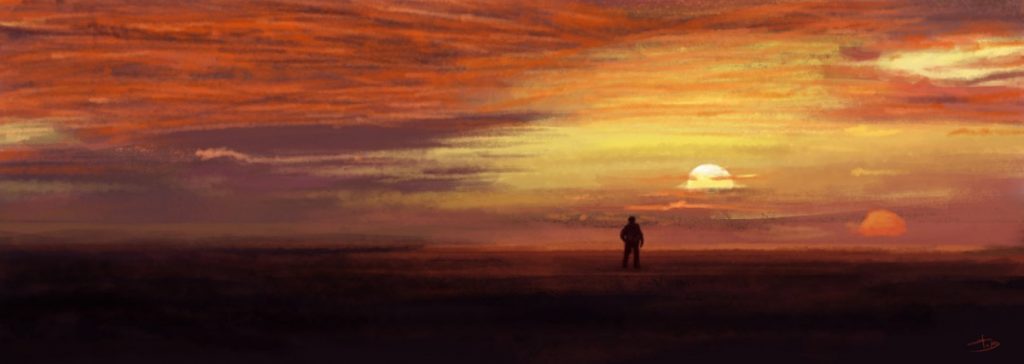
Not the stories, the fictional universes they will take place in or the characters of the stories, though I have a few starting places.
I want stories that are about people as they are, not people forced into molds.
I want main characters from all sorts of places, with all sorts of identities and traits.
I want them in roles, genres, and scenarios we were told not to expect and would never work.
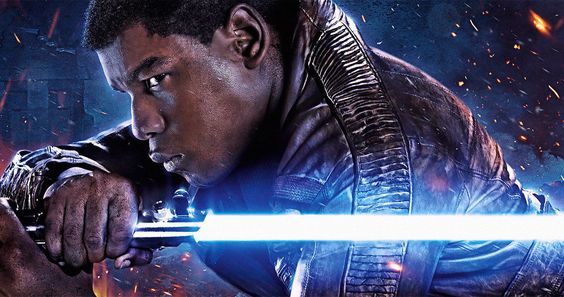
With a lens focused on a diversity that is absent of stereotypes, tokens, the words “progress”, “at least” and “more than before”. Because that isn’t diversity.
And one person’s concept of diversity isn’t diversity either.
It’s one reality shaped by many people, from many perspectives, from many places, many experiences, identities and ideas, working together in that paradoxical, juxtaposition of harmony of differences that means to be human.
The words I hope will be at the forefront is, “Why not now.”
And it’s not a question. It means, “Let’s do this and let’s do this for real.”









